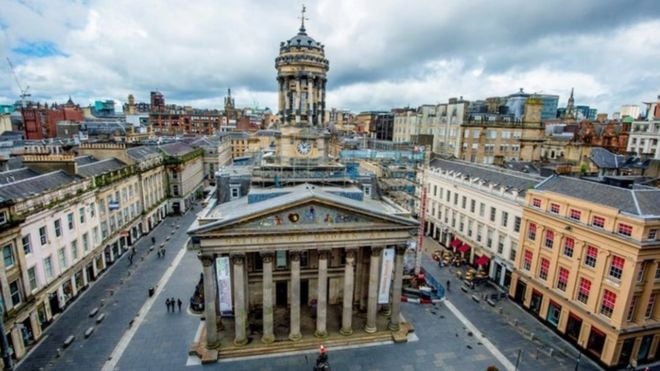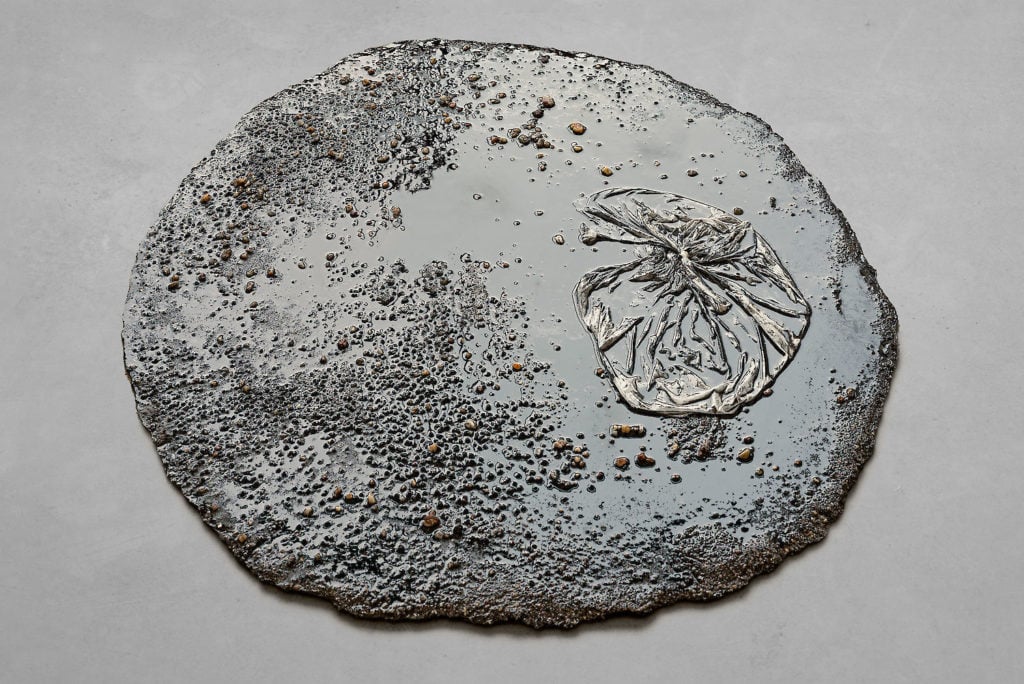Art & Exhibitions
An Artist Cancels Her Exhibition at a Glasgow Gallery. (Secret: That Is the Exhibition)
The conceit for the exhibition is that the show has been cancelled.

The conceit for the exhibition is that the show has been cancelled.

Sarah Cascone

You’d be forgiven for thinking there had been some behind-the-scenes drama at Glasgow’s Gallery of Modern Art (GoMA)—but the gallery, which contains only 21 billboards pronouncing the exhibition’s cancellation, is in fact the work of the artist, Marlie Mul.
“By removing what would traditionally be considered an art object we are presenting the gallery as empty space, giving us a moment to question the value in turning over exhibition after exhibition after exhibition,” said curator Will Cooper in a statement, calling the show “an amazing opportunity.”
Appropriately titled “This Exhibition Has Been Cancelled,” the show instead asks visitors to consider alternative uses for the space during its five-month duration. There aren’t any activities officially on the docket yet, but the gallery expects to host yoga classes, film screenings, life-drawing sessions, and maybe even carpet bowling. Other artists can also apply to to show their own art in the space.
Mul, a Dutch artist who is based in Berlin, wants viewers to question their expectations about art, and to interact with the gallery space differently. GoMA described the “conceptual gesture” as an “implicit critique of what is displayed within museums and galleries” that “question[s] the relevance of an art exhibition in 2017.”
This isn’t the first time artists have subverted viewer’s expectations in this way. Maurizio Cattelan caught the art world’s attention with a prank: his first show consisted of a single sign reading “I’ll be right back” in Italian, and the gallery doors remained locked for the duration of the “show.”
In 2014, performance artist Marina Abramović proudly did nothing, with nothing, for the duration of her exhibition at London’s Serpentine Gallery. Martin Creed even won the 2001 Turner Prize for an empty room in which the lights automatically turn on or off every five seconds, titled Work No. 227, the Lights Going on and Off.
The Hayward Gallery in London held an exhibition, “Invisible: Art about the Unseen,” exploring the phenomena of unseen art, like Yves Klein’s empty white room and John Cage’s famously silent composition, 4’33”, in 2012. The Centre Pompidou in Paris did the same in 2009 with “Voids: A Retrospective.”
The GoMA show, which opens May 26, is already attracting controversy, with the Daily Record calling it “an utter waste of art space.”

Marlie Mul, Puddle (Black Market), 2013. Courtesy of Croy Nielsen, Berlin.
Others are unhappy that the show is receiving funding from Glasgow City Council at a time that the city faces a £53 million ($68.7 million) deficit. “It is remarkable how authorities seem to have a talent for finding innovative ways to waste taxpayers’ money,” John O’Connell of the Taxpayers Alliance told the Scottish Daily Mail. (Mul’s earlier work, sculptures of dirty puddles costing £3,400 each [$4,400] from the 2013 exhibition “Boneless Banquet for One,” at Berlin’s Croy Nielsen, likely did little to inspire confidence in the value of her work.)
The gallery is managed by Glagow Life, which will pay Mul an undisclosed commission fee for the exhibition. O’Connell called it “deeply concerning” that residents “are not being told how much of their hardearned cash is being wasted on this charade.”
“Marlie Mul: This Exhibition Has Been Cancelled” is on view at the Gallery of Modern Art, Royal Exchange Square, Glasgow, May 26–October 29, 2017.